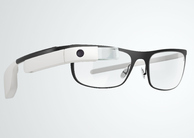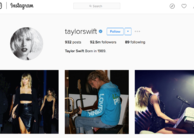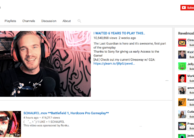From Elon Journal of Undergraduate Research in Communications VOL. 4 NO. 2Constantly Connected: The Impact of Social Media and the Advancement in Technology on the Study Abroad ExperienceIV. Findings and DiscussionThe goal of this study was to assess the impact that social media and advancement in technology have on the study abroad experience. Questions in the survey and the focus group gathered specific information about the respondents and their relationship with technology and social media while studying abroad in a foreign country. Demographic InformationSurvey participants were recruited from former study abroad students through a snowball sampling technique to reach various age groups. A total of 100 respondents participated in an anonymous survey. The majority (88%) of the participants were female. Only 12% were male, reflecting the national trend of women representing the majority of the study abroad population (Twombly et al., 2013). Thirty-nine percent of the respondents were 21 years old and another 39% were 22 years old. This data shows that majority of students do not study abroad until they are in their early twenties. The participants of the focus group consisted of eight senior Elon students that had studied abroad in the past: three males and five females. Their answers and opinions provided further insight into the implications of student's use of social media and digital technology while studying abroad.Cellular Devices AbroadEighty-six percent of the survey participants owned a cellphone while overseas. Of those that owned a cellphone abroad, 42% owned smartphones that had access to the Internet and social media. Those without smartphones used basic devices that offered only calling and text messaging capabilities. Regarding the question "How much time did you use your phone each day?" the majority (73%) of the survey respondents said they used their cellphone less than 30 minutes a day. While 13% said they used it one to less than two hours a day, followed by 11% for 30 to less than 60 minutes a day, and 3% for two to less than four hours a day. This information is significant because it shows that the majority of students kept their phone usage to a minimum each day. This included phone calls, text messaging or any other amenities their phones offered. Of those who had access to the Internet and social media on their cellphone, a sweeping majority of them studied abroad in 2012 or 2013. This is significant because it shows that smartphones and international data plans are growing more convenient and accessible with each passing year. In fact, according to the survey, 75% of the student that studied abroad in 2013 brought a smartphone with them overseas. Communication and Social Media UseWhen asked "How much time did you spend on social media daily?" the majority (62%) of the survey respondents answered that they spent less than 60 minutes a day on social media. Twenty-three percent spent one to less than two hours on social media. Twelve percent spent two to less than four hours a day on social media and 3% spent four or more hours on social media a day. These responses indicated that a vast majority of the participants spent less than an hour on social media daily. Sixty-two percent of the participants communicated with family and friends in the United States two to six times a week. Thirty-one percent communicated with their family and friends at least once a day and 7% communicated with their family and friends once every two or three weeks. The majority of the students were in contact with their friends and family on a daily basis. This exemplifies the convenience and accessibility that the advancement in technology has brought to international communication. In order to gain a perspective on the mobile accessibility of cellular devices, the participants were asked, "Did you ever utilize social media while walking around a city abroad? For example, uploading a picture to Facebook while in a museum or sending a tweet or a text message while sightseeing?" The majority (78%) of the survey respondents said they did not have access to the Internet and/or social media while on the go. However, 22% did utilize social media while walking around a city abroad. The thirteen participants that did utilize social media on the go said that it enhanced their experience. They were able to sustain their relationships via social media. Students enjoyed the ability to communicate with their loved ones in America as things were occurring. The Internet was also a valuable resource for guidance and information, especially in a foreign city. One participant stated, "It enhanced my cultural experience. I liked to share messages and photos with my friends and family as it was all happening." Along the same lines, a participant wrote, "People were interested in what I was doing and where I was, so I would then go into detail about what I was uploading or posting. It really made me realize how lucky I was to be seeing these things." As Lin et al. (2012) stated, these responses supported that with the rise in digital technologies, students were able to gain social capital and sense of identity through social media communities. Students are able to access the Internet, get their questions answered and find local spots to visit. Additionally, students believed they "felt safer" knowing they had access to calls and information at any given time. However, 11 students believed mobile access to the Internet and social media hindered their cultural experience, saying, "I wish I hadn't had such easy access to free Internet." Students felt they were too focused on updating their social media sites instead of focusing on the world around them. "If you are constantly using your phone/social media and not experiencing the sites, you are living less in the moment," said one participant. According to Twombly et al. (2013), students study abroad to develop an understanding of the world, a proficiency in other languages, and knowledge of other cultures. However, these objectives cannot be met if students allow technologies and social media to interfere, thus creating absent presence (Buckingham, 2008). As a witness to such behavior, one student said, "It bothered me that other people were using their smartphones and Facebook while we were visiting historical sites." This remark signifies the extensiveness of such actions. Not only does it distract the user from their education and their immersion with the surrounding culture, but it also disturbs learning and immersion for bystanders as well. Embarking on a new idea, one participant in the focus group added, "I think that people use social media in terms of jealousy; social media gives them a platform to show the world all the fun they're having." People are "over-sharers" when it comes to social media. In today's world, people are becoming active agents on social media. This insight gives reasoning behind the sojourner's need to keep their online communities up-to-date by consistently uploading statuses and photos in a timely manner. Because other online users are able to view, comment and share the sojourner's study abroad information, it can be used as a promotional device. Their pictures, blogs, etc. can positively influence other students to study abroad. Those users who did not have mobile access to the Internet and social media on their phones believed that no access had a positive effect on their experience. "Not having social media meant I spent more time with others which led to deep and meaningful conversations," stated one participant. Enlightened by the world around them, sojourners are able to soak in their surroundings and hold intellectual conversations without any digital distractions. "I didn't have access to the Internet or social media while walking around. This greatly helped my experience because I was living in the moment, not online," said one survey respondent. Study abroaders value intercultural interaction, and distancing themselves from technology allows for more learning opportunities and cultural immersion (Twombly et al., 2013). Impact of Technology and Social MediaWhen asked whether the advancement in technology and the convenience of social media had an overall positive or negative impact on their study abroad experience, 47% percent of the survey respondents answered "positively" and 38% answered "negatively." Seven percent reported technology and social media had both negatively and positively impacted their abroad experience. The answers to this question assessed the participant's personal perception of the impact of technology on their study abroad experience. Of the 47% that answered positively, there was a resounding appreciation for the Internet's ability to connect the sojourner to their loved ones at home and friends abroad in a quick and easy fashion. Students embraced the international access and immediate communication. Not only did it allow easy communication, but also aided in day-to-day needs. For example, one student wrote, "We were able to utilize maps, find directions, and look up good restaurants and sights to see." Those with smartphones were able to constantly keep their families up-to-date on their whereabouts. "It was nice to have that option to let my family know I was okay. It kept my parents from worrying too much." A number of students were able to keep blogs to inform friends and family about their activities abroad. "Now you can share everything you see in such a short manner of time, in a way that is fun to engage in," said one student. All in all, these students believed that having access to the Internet and social media positively impacted their study abroad experience and made it easier to adjust to a new culture. Whether it was for their benefit, or for the benefit of those back home, there was an abundant source of dependency on their technological devices. The students made it clear that utilizing the Internet and social media can have its perks, as long as it is used sparingly. "I wasn't connected all the time. I'd snap pictures during the day and then spend time on social media at night," said one participant in the focus group. By setting time aside each day, students had to make an extra effort not to let technology interfere with their cultural experience. Contrastingly, 38% of the students believed the advancement in technology and the convenience of social media had a negative impact on the ability for study abroad students to fully immerse themselves into the culture. "People get so preoccupied with staying connected to people back home that they don't fully live in the moment and experience their time abroad to the fullest. Even if they're not looking at it; they're thinking about it. It's always on their mind. It's toxic and distracting," said one participant in the focus group. The distance created through the constant communication through the Internet and social media was a common denominator amongst those who thought negatively of the act. One student said, "Instead of enjoying the experience and fully soaking in what they're seeing, students are wondering what picture they're going to upload next or if someone is going to text them back." Social media enables students to latch onto home; therefore, hindering their ability to further immerse themselves in their surroundings. Students in the focus group and in the survey valued the opportunity for spontaneous exploration while abroad and felt that mobile Internet access seemed artificial and took away from the adventure. "I like that grassroots adventure; Just kind of forging your own way," said one participant in the focus group. Some students pointed out that the advancement in technology and the convenience of social media both positively and negatively affect the study abroad experience. "Positively in that I didn't feel so far away from home, but negatively in that I probably spent time on social media when I could have been out and about exploring the city and enjoying my time." For those that rely heavily on social media on their mobile devices, this constant distraction can deprive students of getting involved and engaging themselves in the culture around them. The student's indecisiveness embodies the subconscious need for that sense of comfort: the Internet. Students realize it can be distracting, yet they seek to stay connected regardless. Given the valid reasoning behind the respondent's opinions, it is clear that there are both positive and negative effects of social media and the advancement in technology. The advancement of technology has positively impacted the abroad experience in that it's much more convenient to communicate and find places to go and things to do while on the go. The pervasiveness of social media has negatively affected the experience; people often seem more interested in documenting an experience for the Internet to see instead of fully appreciating the moment as it happens.Continued on Next Page » Suggested Reading from Inquiries Journal
Inquiries Journal provides undergraduate and graduate students around the world a platform for the wide dissemination of academic work over a range of core disciplines. Representing the work of students from hundreds of institutions around the globe, Inquiries Journal's large database of academic articles is completely free. Learn more | Blog | Submit Latest in Business & Communications |



















